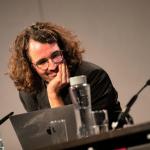In the critical literature, it is common place to stress that a lot of what international law does to the world and to people it does it with words. And yet, as it is argued in this presentation, international law does not only do what it does through words but also with things. Indeed, international law is the site of a mode of thinking that is called here thingifying thinking. By virtue of thingifying thinking, international law turns into a thingifying discourse that transforms into things all what crosses its path. In other words, international law is an irresistible thing-maker whereby the world, practices, states, actors, people, borders, environments, histories, cultures, traditions, races, genders, bodies, identities, economic development, discriminations, oppressions, injustices, etc. are given a thingly materiality. As a result, they exist as things and not as constructed, metaphysical or ethereal phenomena. This state of affairs is not benign at all. The thingly facticity awarded to the world by thingifying thinking carries with it what is called here a discursive immunity. Indeed, once elevated into a thing, the world and its components come to stand outside the performativity and the world-making effect of discourse: they become a-constructed, fixed, and uninterpretable. They lie outside critique. It is argued here that creating discursive immunity and stifling critique are characteristics of fascist thought.
Jean d’Aspremont is Professor of International Law and International Legal Theory at Sciences Po Law School and at the University of Manchester. He has published two dozens of books on questions of international legal theory and international law. Many of his articles and monographs have been translated in several languages including Spanish, Portuguese, Russian, Mandarin Chinese, Hindi, Japanese and Persian. His latest monographs include The Epistemology of the Secret (Cambridge University Press, 2025), The Experiences of International Organizations (Elgar, 2024), Expansionism in International Human Rights Law (Brill, 2024).
Discussants : Thomas Gmuer (Université de Lausanne) and Gabriel Sebbah (Cabinet Vigo avocats)
The mission of the Yves Oltramare Chair for Religion and Politics in the Contemporary World is to provide a major scientific contribution to the analysis of the impact of the relationship between religion and politics on the evolution of societies and the international system.
GENEVA GRADUATE INSTITUTE
Chemin Eugène-Rigot 2A
Case postale 1672
CH - 1211 Geneva 1, Switzerland
+41 22 908 57 00
ADMISSIONS
prospective@graduateinstitute.ch
+ 41 22 908 58 98
MEDIA ENQUIRIES
sophie.fleury@graduateinstitute.ch
+41 22 908 57 54
ALUMNI
carine.leu@graduateinstitute.ch
+ 41 22 908 57 55




